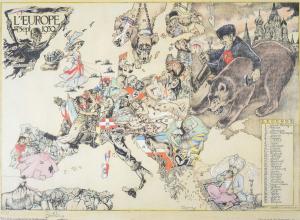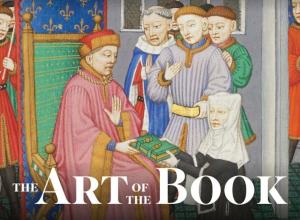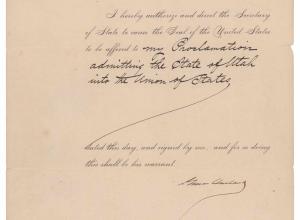Christie's NY to Auction Pacioli's "Summa de Arithmetica"
New York - Christie’s is thrilled to announce the auction of Luca Pacioli’s Summa de arithmetica as a single-lot auction titled Summa de Arithmetica: The Birth of Modern Business directly preceding the Fine Books & Printed Manuscripts sale on 12 June 2019 at Christie’s New York (estimate: $1,000,000-1,500,000). Pacioli’s book, published in 1494, codified the mathematical foundations of our modern and technological world. It includes mathematics, computing, and is the first published description of double-entry book-keeping. Pacioli was among the earliest to recognize the study of economics as a liberal art and this work is the first practical how-to book on succeeding in business. The Summa de arithmetica will be toured to London from 21-27 February, New York from 7-10 March, San Francisco in April and Hong Kong in May ahead of the auction on 12 June in New York.
In writing the Summa de arithmetica, Pacioli sought to include all the mathematical knowledge available at the close of the 15th century, which saw the European adoption of Hindu-Arabic mathematics and its synthesis with rediscovered ancient Greek knowledge. Pacioli was also collaborator and friend of the famed artist and inventor Leonardo da Vinci. The two shared a home in Milan for five years where they worked together on mathematics and perspective for several productive years that included Leonardo’s creation of The Last Supper, until both were forced to flee following the French invasion.
Christina Geiger, Head of Books & Manuscripts, New York states “Pacioli’s achievement is one of the great untold stories of the Renaissance. As Leonardo and others made revolutionary strides in art, and Machiavelli did for politics, so too did Pacioli for business. From double-entry bookkeeping to probability theory and computing, the mathematical principles of the most vital features of contemporary finance are all present in the Summa de arithmetica.”
Pacioli’s Summa represents the pinnacle of mathematical knowledge in the Renaissance, when the forgotten wisdom of the past was brought up-to-date with Islamic and Indian science—all in service of human life and flourishing. Pacioli’s work is an icon not just of Renaissance learning, but of the history of human knowledge.















